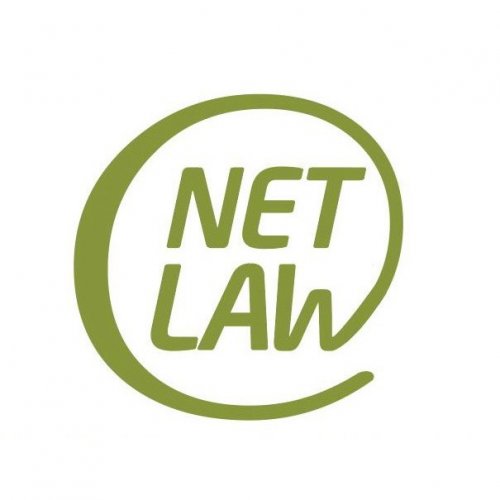Best E-commerce & Internet Law Lawyers in Hanoi
Share your needs with us, get contacted by law firms.
Free. Takes 2 min.
List of the best lawyers in Hanoi, Vietnam
About E-commerce & Internet Law in Hanoi, Vietnam
E-commerce and Internet Law in Hanoi, Vietnam, has evolved rapidly as the digital economy expands. As Vietnam integrates deeper into the global e-commerce market, the legal framework is gaining sophistication to manage electronic transactions, digital contracts, data protection, cybersecurity, and intellectual property rights. Hanoi, being the capital, plays a central role in shaping and enforcing these laws, ensuring the digital marketplace is fair and secure for businesses and consumers alike.
Why You May Need a Lawyer
Engaging with E-commerce & Internet Law often requires specialized legal knowledge due to the complexities involved. Here are common situations where legal advice might be necessary:
- Establishing an e-commerce business and understanding legal requirements for digital contracts and transactions.
- Protecting intellectual property rights such as trademarks, copyrights, and patents in a digital context.
- Ensuring data privacy and compliance with the Law on Cybersecurity and other relevant regulations.
- Resolving disputes related to online transactions or contractual agreements.
- Dealing with cybercrime incidents impacting your business or personal data.
Local Laws Overview
Description of key local laws relevant to e-commerce and internet activities in Hanoi:
- Law on E-Transactions: Governs all electronic transactions in Vietnam, providing a legal foundation for online activities.
- Law on Cybersecurity: Protects against cyber threats and ensures data security practices are followed by enterprises, including online businesses.
- Decree No. 52/2013/ND-CP: Pertains specifically to e-commerce activities, laying out detailed provisions for different forms of online commercial activities.
- Law on Protection of Consumers' Rights: Offers guidance and protection for consumers engaging in e-commerce transactions.
- Intellectual Property Law: Provides protection mechanisms for online content and software to prevent unauthorized use or duplication.
Frequently Asked Questions
What do I need to legally start an e-commerce business in Hanoi?
To start an e-commerce business in Hanoi, you need to register with the Department of Planning and Investment, comply with Decree No. 52/2013/ND-CP, and ensure your business adheres to laws on advertising, tax, and consumer protection.
How is customer data protected under Vietnamese law?
The Law on Cybersecurity and Law on Protection of Consumers' Rights in Vietnam mandate that businesses protect personal data, request consent for data usage, and avoid misuse or unauthorized sharing of data.
What should I do if my e-commerce website faces cyberattacks?
You should report the incident to relevant authorities such as the Vietnam Computer Emergency Response Team (VNCERT) and consult with legal professionals to assess liability and compliance issues.
How does Vietnam regulate digital advertising?
Digital advertising in Vietnam is regulated under the Law on Advertising, which requires transparency, truthfulness, and respect for cultural norms. Online ads must not deceive consumers or infringe on intellectual property rights.
Is encryption necessary for e-commerce transactions in Vietnam?
While not always legally mandatory, encryption is strongly recommended to ensure the security and integrity of electronic transactions, align with cybersecurity frameworks, and build consumer trust.
How do I handle cross-border e-commerce disputes?
Cross-border disputes can be complex due to jurisdictional issues. Seeking legal advice and potentially involving international arbitration or mediation may be necessary for resolution.
What are the penalties for violating e-commerce laws in Vietnam?
Penalties for non-compliance can include fines, business suspension, or revocation of business licenses, depending on the severity and nature of the violation as outlined in relevant decrees and laws.
Can I use foreign platforms for e-commerce in Vietnam?
Yes, foreign platforms can be used, but they must comply with Vietnamese laws related to consumer protection, tax, and cybersecurity.
What are the tax implications for an e-commerce business?
E-commerce businesses are subject to corporate income tax, value-added tax (VAT), and other relevant taxes. Compliance with the Vietnamese taxation system is crucial for legal operation.
Does Vietnamese law support digital signatures?
Yes, digital signatures are supported under the Law on E-Transactions and are considered valid for legal purposes when correctly authenticated and used.
Additional Resources
- Ministry of Industry and Trade (MOIT): Offers resources and legal guidelines for businesses engaged in e-commerce.
- Vietnam E-commerce and Digital Economy Agency (iDEA): Provides updates and assistance regarding online business regulations.
- Legal Consultancies: Numerous local and international law firms in Hanoi specialize in e-commerce and internet law, offering expert legal advice.
- Vietnam's Cybersecurity Center: Provides information and support on cybersecurity issues affecting e-commerce platforms.
Next Steps
If you require legal assistance in the field of E-commerce & Internet Law, consider the following steps:
- Consult with a specialized lawyer who has expertise in Vietnamese e-commerce and internet laws.
- Engage with a law firm that has experience in handling digital economy cases to ensure comprehensive advice and representation.
- Reach out to local business associations or chambers of commerce for recommendations and networking opportunities.
- Stay informed about the latest legal updates and compliance requirements by attending seminars or webinars on e-commerce law in Vietnam.
Lawzana helps you find the best lawyers and law firms in Hanoi through a curated and pre-screened list of qualified legal professionals. Our platform offers rankings and detailed profiles of attorneys and law firms, allowing you to compare based on practice areas, including E-commerce & Internet Law, experience, and client feedback.
Each profile includes a description of the firm's areas of practice, client reviews, team members and partners, year of establishment, spoken languages, office locations, contact information, social media presence, and any published articles or resources. Most firms on our platform speak English and are experienced in both local and international legal matters.
Get a quote from top-rated law firms in Hanoi, Vietnam — quickly, securely, and without unnecessary hassle.
Disclaimer:
The information provided on this page is for general informational purposes only and does not constitute legal advice. While we strive to ensure the accuracy and relevance of the content, legal information may change over time, and interpretations of the law can vary. You should always consult with a qualified legal professional for advice specific to your situation.
We disclaim all liability for actions taken or not taken based on the content of this page. If you believe any information is incorrect or outdated, please contact us, and we will review and update it where appropriate.














